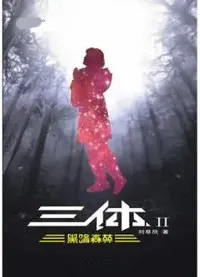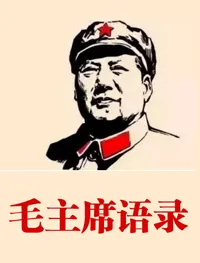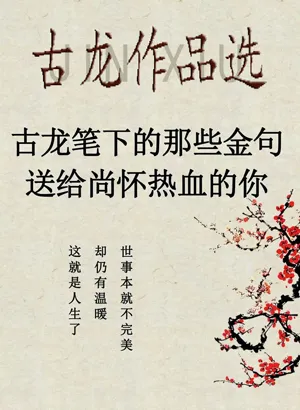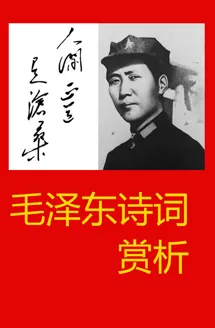QUENTIN returned to the inn and shut himself up in his room. He wrote a farewell article for La Víbora entitled “And this is the End.”
When night fell, he lit his lamp and sent for his supper. He ate in his room to avoid any unpleasant encounters in the dining-room.
With his supper, the waiter brought two letters. One, by the rudely scrawled1 envelope, he saw was from Pacheco’s brother. It read as follows:
If you do not return the pocketbook you found in my brother’s house, you will not leave Cordova alive. Don’t fool yourself; you will not escape. Every exit is watched. You can leave the money in El Cuervo’s tavern2, where some one will go and get it.
A Friend.
“Very good,” said Quentin, “let’s see the other letter.” He opened it, and it was still more laconic3 than the first.
We know that you have money, and do not wish to pay. Be careful.
“Well, sir,” murmured Quentin, “a whole conspiracy5 of bandits and money-lenders is plotting against me.”
It suited neither him nor the others to have the law mixed up in the affair. The cleverest, the strongest, or he who had the most cunning, would gain the day.
Quentin figured that he possessed6 those qualities to a[333] greater degree than his enemies; this thought calmed him a little, but in spite of it, he could not sleep that night.
When he got up, he looked, as was his daily habit, through the windows of his room. Directly opposite, seated upon a bench, there were several loathsome7 individuals spying on him. At that very moment others took their places. Evidently there was a relief.
After eating, Quentin left the inn. When he reached the corner of the Calle de Gondomar, he looked cautiously behind him. Three men were following him, though apparently8 unconcerned with his movements. Quentin went down the street to Las Tendillas, turned to the left, entered the Casino, and sat down to take his coffee near a window that looked out upon the street.
The three individuals continued their espionage9.
Quentin pretended not to see them. He seized several newspapers; and while he appeared to be deeply engaged in reading them, he was thinking up plans of escape and turning them over and over in his mind. The important thing was to keep the law from interfering10, that there might be no scandal.
Don Paco, who had come in to take coffee, surprised him in this caviling. The man was oozing11 joy. The Revolution was made, the most glorious, the most humane12 that the centuries had ever witnessed. The entire world, the French, the English, the Swiss, the Germans;—all envied the Spaniards. Spain was going to be a different sort of country. Now, now, the great conquests of Progress and Democracy would be realized: Universal Suffrage13, Freedom of Worship, Freedom of Association.
“And do you believe that all that will make life any better?” asked Quentin coldly.[334]
“Why, of course!” exclaimed Don Paco, astonished at the question. “I tell you that the whole Progressist program is to be realized!”
Quentin smiled mockingly.
Don Paco continued his oration14. His eternal sorrow was to see that after what he had done for the Revolution, they did not appreciate his true worth.
While the old man discoursed15, Quentin continued to ruminate16 on his plans, and to absently watch his pursuers. Suddenly an idea occurred to him.
“Well, good afternoon, Don Paco!” he said; and without another word, he rose from his chair and left the room. He crossed the patio17 of the Casino, went up a stairway, asked a waiter for the key to the terrace, waited for it a moment, and went out upon the azotea. He could escape in that way, but there was still the danger of his exit from the city....
“Suppose I go to El Cuervo’s tavern and leave by the convent route?” he said to himself. “That would be admirable. Place myself in the wolf’s mouth to make my escape! That’s just what I’ll do. I’ll wait for it to get dark first.”
He went down to the salon18 again and took his place by the window. The espionage still continued. Late in the afternoon, Carrahola and El Rano passed along the street.
Quentin went to the door of the Casino and called to Carrahola.
“Do you mind telling me what this persecution19 means?” he said.
“You know better than any one else, Don Quentin,” answered Carrahola. “You are wrong not to return that money.[335]”
“Bah!”
“Sí, Señor; that’s the truth. Everything is guarded; the station, the roads,—you won’t leave Cordova unless you pay.”
“Really?” asked Quentin apparently frightened.
“You hear me. So you’d better hand over that money and not expose yourself to a stab with a dagger20.”
“The devil! You very nearly convince me.”
“Do it, Don Quentin.”
“To whom shall I hand the money?”
“To Pacheco, Señor José’s brother. He goes to El Cuervo’s tavern every night about eight o’clock.”
“I’ll think it over.”
“Don’t stop to think, my friend! You ought to take that money back right away.”
“Well, you have persuaded me. I’ll go right away.”
Quentin made his way to the inn, followed by Carrahola and El Rano. He entered his room, closed the window, and lit the lamp. He still had in his pocket the pocketbook that he had found in Pacheco’s house. He took it out and placed it on the table.
He opened the wardrobe, searched the drawers, and in one of them found some copy paper written by a child, and in another a torn, and well-worn catechism by Father Ripalda.
He took the copy paper and the catechism, tied them together with a pack-thread, and thrust the package into the pocketbook which he tied up with another bit of thread.
“Very good,” he murmured with a smile.
This done, he put out the light, thrust the purse into his coat pocket, and left the inn. He began to walk rapidly, as one who has made a quick decision. He made[336] his way to El Cuervo’s tavern, escorted by Carrahola and El Rano.
He looked into the office, and when he saw El Cuervo, exclaimed sourly:
“Hello!”
“Hello, Don Quentin!”
“Is Pacheco’s brother here?”
“No, Señor.”
“What time will he come?”
“Oh, somewhere around eight o’clock.”
“Good. I have come to have an understanding with him, and I can’t make up my mind whether to give him the money or a stab with a dagger. Look here, here’s the pocketbook he’s looking for. Keep it. I’m going to wait in here for Pacheco, because I have some letters to write.”
“Go right upstairs.”
Quentin and El Cuervo went upstairs to a room with a balcony overlooking a patio.
“I’ll bring you some paper and ink presently,” said the landlord.
“Good. Until Pacheco comes, I do not wish to be disturbed by any one. Do you understand?”
“Very good.”
“When he comes, call me, and he and I will come to an understanding. But he must agree not to open the pocketbook until I am with him.”
“Never fear.”
The innkeeper went out and left Quentin alone in the room. He listened for a moment and heard the gay voices of Carrahola and El Rano. Evidently they were already celebrating their victory.
“Come, there’s no time to be lost,” said Quentin.[337] Climbing to the outside of the balcony, which was not very high, and clinging to a water pipe, he lowered himself to the patio. This he skirted, hugging close to the wall. He pushed open the little door, closed it noiselessly behind him, and began slowly to climb the stairs. The steps creaked beneath his weight.
When Quentin arrived at the top of the stairs, he saw that the door through which he had once passed with El Cuervo, was locked. It had a transom, which he opened, and with a superhuman effort, managed to squeeze himself through, not without injuring one of his feet. He made a slight noise as he jumped down.
He listened for a while to see if any one were following him. He heard nothing. He closed the transom.
“Any one could tell where I went out,” he murmured.
He lit a match which he held in the hollow of his hand until he found the stairway made of beam ends sticking from the wall. When he had located it, he blew out the match, and climbed to the attic21 in the dark.
He lit another match and hunted for the aperture22 through which he and El Cuervo had passed, but he could not find it. Looking more carefully, he saw that it was fastened up by some boards held in place by bricks. He tore these aside with his nails one by one then he removed the boards, and the hole appeared.
Quentin went out on the roof. It was still light.
“Let’s get oriented,” he said to himself. “That’s the garret, which is the first place to go.”
Stooping on all fours, he slid along until he reached it. He paused to get his bearings again.
“Now I’ve got to cross that azotea where we abandoned Doña Sinda: it must be that one. Here goes.”
He went on his way, jumped the balustrade on one[338] side, then on the other, went a little further,—and turned the wrong way. He was confused, not knowing which way to go: whether to the right or to the left. It was beginning to get dark, and Quentin went around and around fruitlessly, unable to find the cornice along which he had passed with Pacheco.
Suddenly he heard the ding dong of a bell and supposing it to be that of the convent, he followed the direction of the sound, climbed a ridge23 pole, and saw beneath him the patio of a convent where several nuns24 were walking to and fro.
Quentin climbed down the whole side of a roof, found the cornice, and reached the balcony on all fours. The little window was open, and he jumped to the stairs.
There was a little passageway opposite, on one side of which was an open door that led into a kitchen. It was probably the gardener’s house; in the middle of the kitchen, seated upon the floor, was a child playing. Upon the wall hung a dirty blouse and an old hat.
“At them!” cried Quentin.
He entered the kitchen, seized the blouse with one hand and the hat with the other, and beat a hasty retreat. The child was frightened and began to cry. Quentin descended25 the stairs into the garden, and as no one was looking, put on the blouse, stuck the hat on his head, and went out into the street.
He went through alley26 after alley in the direction of El Matadero and the Campo de San Antón. As night fell, he was already well on his way to Madrid.
Meanwhile in El Cuervo’s tavern, everything was excitement and merry making. The news, divulged27 by[339] Carrahola, that Quentin was there with the money, had attracted all the ruffians who had taken part in Pacheco’s chimerical28 attempt. They thought they would get paid for their services, and El Cuervo trusted them for wine.
They awaited impatiently the arrival of Pacheco, who was later than usual that evening. At eight-thirty he appeared.
“Pacheco! He’s come!” they all shouted at once when they saw him.
“Who?”
“Quentin. Here’s the pocketbook.”
“Did you let him go without following him?” asked the man, fearing a trick.
“Ca!” replied El Cuervo. “He’s upstairs. He said not to open the pocketbook until he was with you.”
“All right,” and Pacheco turned pale. “Tell him I am here.”
Pacheco knew from his brother what kind of a man Quentin was, and it irked him. He expected a surprise, and prepared himself accordingly.
El Cuervo went up to the room where he had left Quentin, and called several times:
“Don Quentin! Don Quentin!”
No one answered.
“Don Quentin! Don Quentin!”
The same silence.
El Cuervo gently opened the door. The bird had flown. But where?
In response to El Cuervo’s cries, Pacheco, Carrahola, and El Taco, came hurrying up the stairs.
“What’s the matter?” they asked.[340]
“He’s not here.”
“That’s what I thought!” exclaimed Pacheco. “What can be in the pocketbook? Let’s look at it.”
They descended rapidly, Pacheco cut the threads, opened the pocketbook, and spilled upon the counter the child’s copy papers and Father Ripalda’s catechism, worn and shabby.
A cry of rage burst from every throat.
“We must look for him,” said one, “and make him pay for this joke.”
They ran through the whole house and looked into every corner. Nothing.
“Ah!... Now I know where he went,” said the innkeeper, “that way,”—and he pointed29 to the door in the patio. He lit a lantern and examined the steps one by one to see if there were any tracks in the dust. There was some discussion as to whether the traces they found were Quentin’s or not, but when they saw the closed door upstairs, nearly all of them were of the opinion that he could not have passed that way.
“Nevertheless,” said El Cuervo, “we’ll keep on going.” He opened the door, climbed to the attic, and saw the boards which had been torn down to allow free passage to the roof.
“He escaped through here.”
“What can we do?” asked Pacheco.
“A very simple thing,” replied El Cuervo; “surround this whole block of houses. He is probably waiting for it to get dark before he leaves, so perhaps we can catch him yet.”
“Good,” said Pacheco; “let’s go downstairs right away.”
The idea seemed an admirable one to all those who[341] were in the tavern. Pacheco placed them on guard, and told them to warn the watchmen.
With the hope of pay, the whole gang of ruffians firmly stood their posts. Now and then they returned to the tavern for a glass.
Day dawned, and Pacheco’s men were still walking the streets, now hopeful, now with no hope at all.
The morning of the following day the rowdies were still on guard, when two lancers came up the street at a smart trot30 and drew rein31 before the tavern.
“Is this El Cuervo’s tavern?” asked one of them.
“Sí, Señor.”
“Good. Here’s a letter.”
The innkeeper, his face the picture of surprise, took the missive, and as he could not read, handed it to Pacheco, who opened it and read:
Dear Friends:
By the time you receive this letter, I shall be many leagues away. I have left Cordova alive, in spite of your warnings. I left no money in the pocketbook, but something better for the salvation32 of your souls. Regards to my dear friends.
Q.
Pacheco went white with anger.
“Now we can’t do a thing,” he murmured.
That night in the coterie33 at the Casino, they were talking about Quentin.
A gentleman was reading the farewell article that Quentin had published in La Víbora under the title, “And this is the End.”
“Let’s hear it; let’s hear the end of it,” said several.
The gentleman began to read the ending. It went like this:[342]
Adiós, Cordova, City of the Discreet34, Mirror of the Prudent35, Cross-roads of the Cunning, Nursery of the Sagacious, Encyclopedia36 of the Witty37, Shelter of Those who Sleep in Straw, Cave of the Cautious, Conclave38 of the Ready-witted, Sanhedrim of the Moderate! Adiós, Cordova! And this is the end.
“Fine!” said some one with a laugh. “The fact is, Quentin is a very likable lad.”
“Rather!”
“Some day he’ll be a deputy.”
“Or a minister.”
“He really is a most likable boy.”
And Escobedo, he of the black beard, who was present, added:
“He who triumphs is always likable.[343]”






